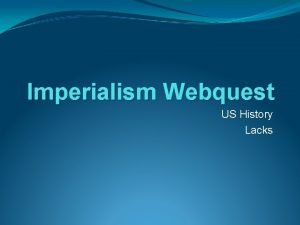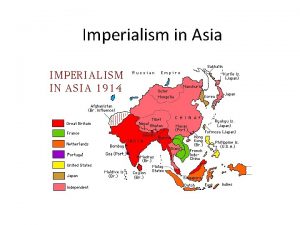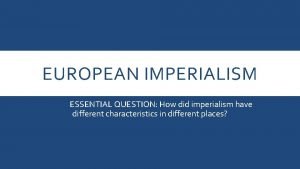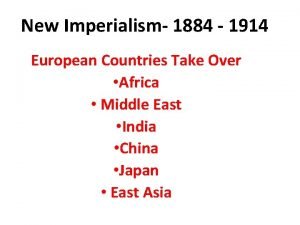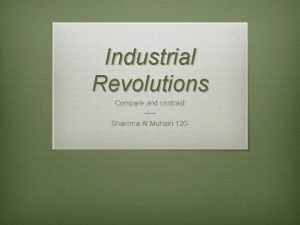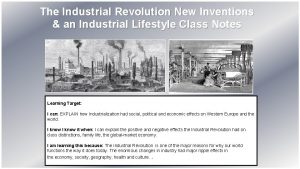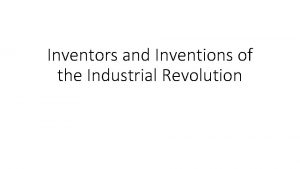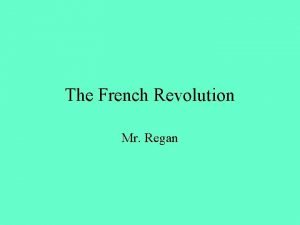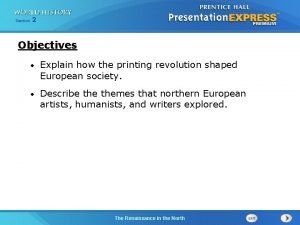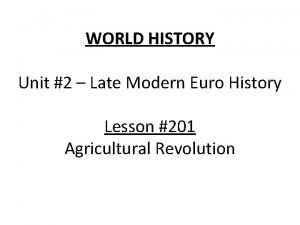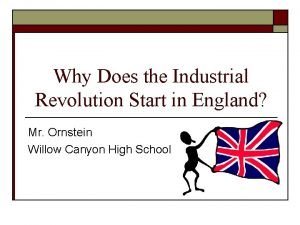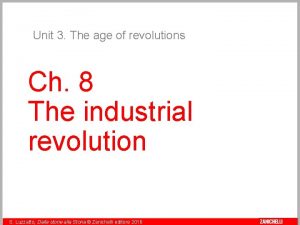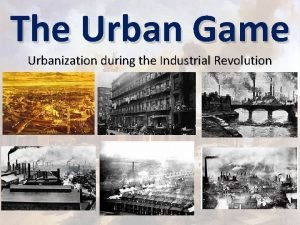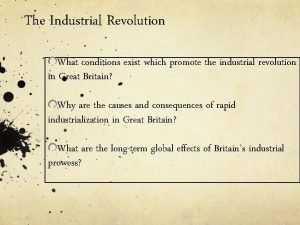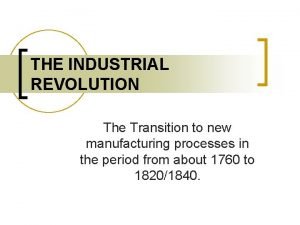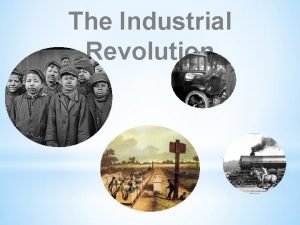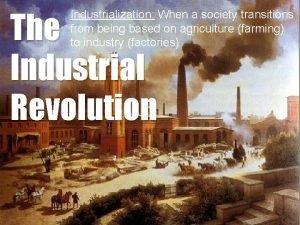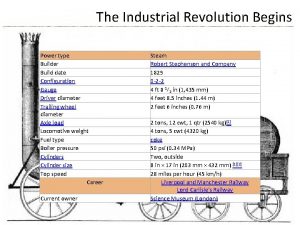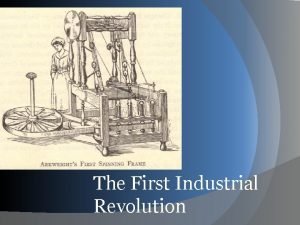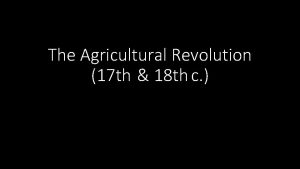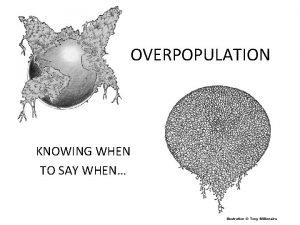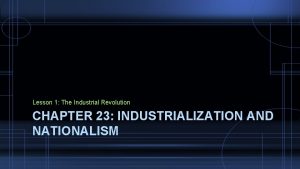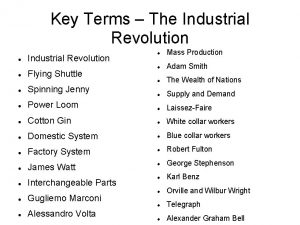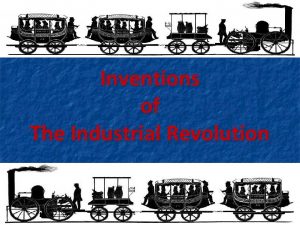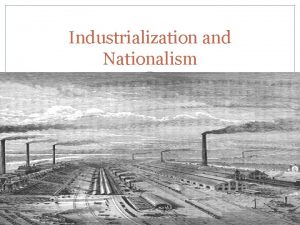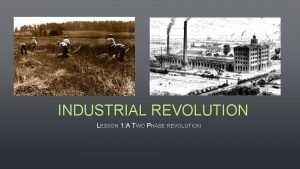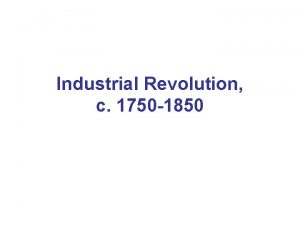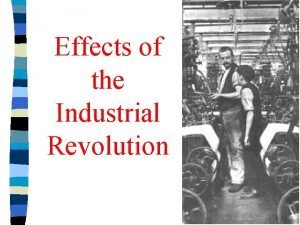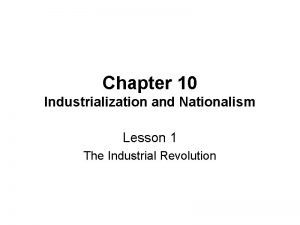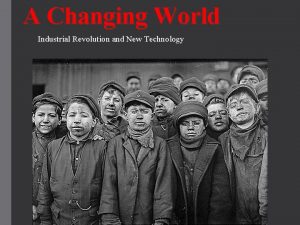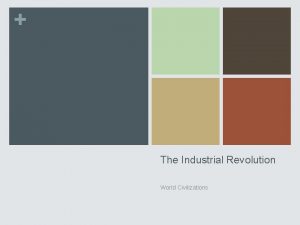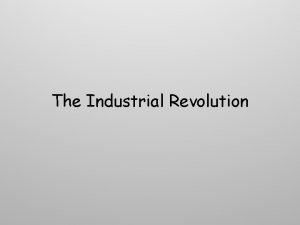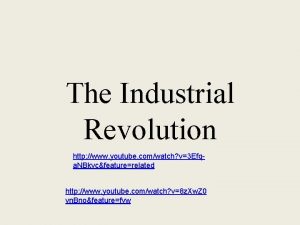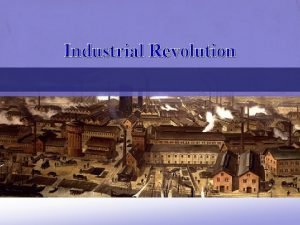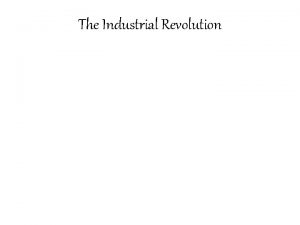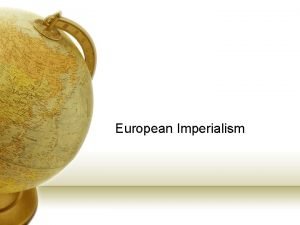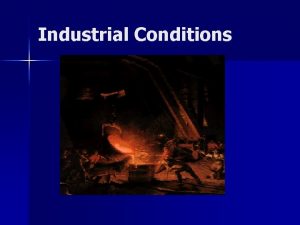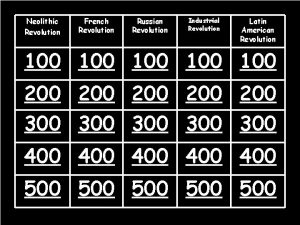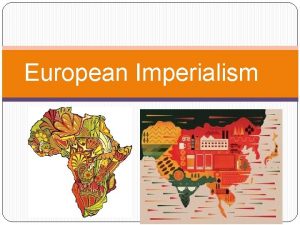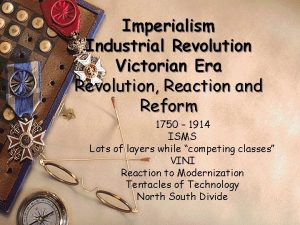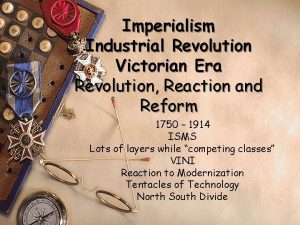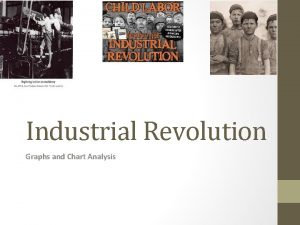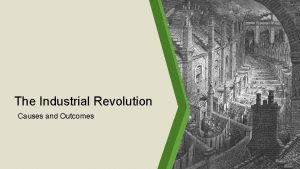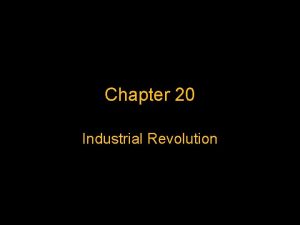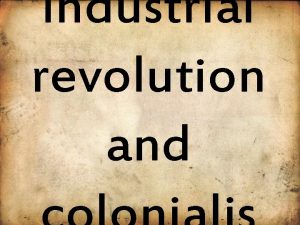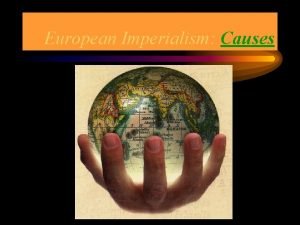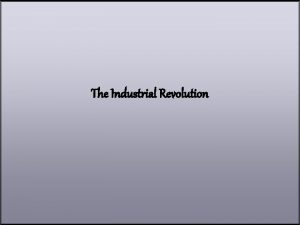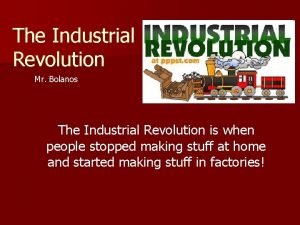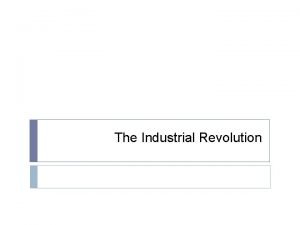European Imperialism Imperialism and the Industrial Revolution The




















































- Slides: 52

European Imperialism

Imperialism and the Industrial Revolution • The Industrial revolution brought about a great need for raw materials. • As a result many European countries began to seek raw materials from the continents of Asia, Africa, and South America. • While seeking out these raw materials the Europeans established their rule on these continents expanding an empire. (colonialism) • Western imperialism was not new; Europeans had been influencing or conquering parts of the world since the 1400’s. • Columbus • Spanish • U. S. grew from coast to coast during 1700’s.

Imperialism • Imperialism: process through which a state attempts to control the economic and/or political and cultural makeup of another state. • Colonialism: the most developed form of Imperialism whereby the controlling state invades another state/region so as to exploit its resources and/or for the purposes of large-scale • Between 1815 -1914 the West (Europe and America) increased their control of the world’s land mass from 35%-85%.

New Imperialism • Began in 1870 s colonized Asia and Africa by using military force to take control of local governments • Exploiting local economies for raw materials required by Europe’s growing industry • Imposing Western values to benefit the “backwards” colonies.

Source for Raw Materials Industrial Revolution Markets for Finished Goods European Nationalism Missionary Activity European Motives For Colonization Military & Naval Bases Social Darwinism Places to Dump Unwanted/ Excess Popul. European Racism “White Man’s Burden” Humanitarian Reasons Soc. & Eco. Opportunities

Major Causes for New Imperialism • Search for new markets and raw materials • Missionary work: far more successful in Africa than in Asia and Islamic world. • Dr. David Livingston: first white man to do humanitarian and religious work in south and central Africa • H. M. Stanley found Livingston (whom westerners thought to be dead) and his newspaper reports created European interest in Africa

Age of Imperialism

Causes of Imperialism • Economic • Industrialization gave the West the ability to conquer other parts of the world, but more reasons to do so, too. • Large-scale industrial production made Western factories demand more raw materials, which could be seized from less powerful nations. • Also, Western nations needed markets for goods produced. • Colonies would serve as potential markets. • Immense wealth allowed Western world to conquer far-flung places.

Causes of Imperialism • Military Factors • Industrialization bestowed new weaponry of all types upon the armies and navies of the West: • Ocean-going fleets • Modern rifles and rapidfire artillery. • Occasions were rare that native populations could resist Western military forces. • Growing need of Western nations to maintain bases & coal/oil stations around the world for naval & civilian fleets. • Ships required repairs and refueling stations at strategic locations globally.

Causes of Imperialism • Social Factors • Europe’s rapid population growth during the 1800’splayed a role in prompting imperial activity. • Emigration to the Americas was an outlet. • Millions came to the Americas. • Another outlet was to leave home for colonial life. • Ambitious or desperate families attempted to make their fortunes this way.

Causes of Imperialism • Role of Science & Technology • Instrumental in allowing West to conquer & colonize. • Knowledge was power. • Advances in transportation, communication, and warfare brought by the I. R. enabled Western nations to build empires. • New wave of exploration allowed for better knowledge of the geography of the world. • Medical advances • Made possible for Euros and Americans to press into tropical regions. • Quinine helped relieve symptoms of malaria & yellow fever.

Causes of Imperialism • Cultural Factors • Sense of racial superiority was widespread among Westerners. • Created a sense that Western nations were entitled to conquer & colonize areas that appeared “backwards” or “primitive”. • Cecil Rhodes, British imperialist, “I contend that we are the finest race in the world, and the more of it we inhabit, the better. ”

Causes of Imperialism • Cultural Factors • In some cases, the belief was “justified” in crude & prejudiced ways. • In other ways, theory of social Darwinism* was used to argue in favor of imperialism. • Misguided application of “survival of the fittest” and natural selection. • People who were tech. and culturally advanced were permitted to conquer those who were less.

Causes of Imperialism • Cultural Factors • Genuine conviction that it was the duty of white Westerners to teach & modernize the darker-skinned, supposedly “primitive” peoples of Africa & Asia. • English poet Rudyard Kipling, “White Man’s Burden”. • Attitude was well-meaning and heartfelt, but also condescending. • Euro & American missionaries, doctors, and scientists, and colonial officials sometimes did much good in the places they visited. • Did so out of a subconscious sense of racial superiority, and often trampled on the beliefs and ideas of the natives.

Ideology: Nationalism and Social Darwinism • "White Man's Burden": racist patronizing that preached that the “superior” Westerners had an obligation to bring their culture to “uncivilized” peoples in other parts of the world. • Poem by Rudyard Kipling • Social Darwinism- application of Darwin’s “survival of the fittest” theory to humans

The White Man’s Burden • Poem written by Englishman Rudyard Kipling • It was the duty of the white man to bring western civilization to other lands


Social Darwinism • West had a sense of racial superiority • Darwin’s theory of “natural selection” & “survival of the fittest” applied to the human societies • Destruction & conquest of weaker races was nature’s way of improving the species

The “White Man’s Burden”?

Western advantages • • • Strong economies Well-organized governments Powerful armed forces Superior technology and medicine Maxim gun Quinine

Africa • 1880, Europeans controlled 10% of Africa • 1914 Europeans controlled all except Liberia & Ethiopia

Africa: Berlin Congress 1884 -85 • Established the "rules" for conquest of Africa • sought to prevent conflict over imperialism • Congress coincided with Germany's rise as an imperial power • Agreed to stop slavery and slave trade in Africa • Germany took control of Cameroon, Togo, southwest Africa, & East Africa • France took control Tunisia, Algeria, French West Africa (including Morocco, Sahara, Sudan, Congo basin) • Italy: took control of Libya • Belgium: Took control of the Congo

Africa: Berlin Congress 1884 -85 • Britain: perhaps the most enlightened of the imperialist powers (though still oppressive) • Yet, they interfered as little as possible with local customs. • Took control of Egypt in 1883 (model for "New Imperialism") • Pushed southward and took control of Sudan • Battle of Omdurman (1898): General Horatio H. Kitchener defeated Sudanese tribesman and killed 11, 000 (use of machine gun) while only 28 Britons died

The Congo "I do not want to risk. . . losing a fine chance to secure for ourselves a slice of this magnificent African cake. ”--Leopold II Belgian Congo

King Leopold II of Belgium • • King Leopold II of Belgium was a figurehead without any actual say in the governement from 1865– 1909. He had great ambition to make Belgium, a relatively new and small nation, one of the great imperial powers of Europe. He thought that colonization was the best way to do this. “Since history teaches that colonies are useful, that they play a great part in that which makes up the power and prosperity of states, let us strive to get one in our turn. "

Leopold’s Attempts at Acquiring Colonies • He launched several unsuccesful schemes to buy colonies, but all of his attempts at aquiring territory were blocked by the Belgian government, which viewed colonization as a bad investment. • Leopold decided that if the Belgian government would not support him, then he would do it himself. • He set his sights on the Congo, a piece of land in the heart of Africa that had remained uncolonized by “civilized” society.

The African International Association • In 1876 Leopold, using his own vast wealth, and acting completely independent of the Belgian state, sponsored a humanitarian conference as a front for his ambition to colonize, which resulted in the formation of the African International Association, of which he was the sole shareholder. • The Association was given internation support in its quest to “civilize” the natives, through promises to end slavery in the Congo, protect the rights of the natives, and guarantee free trade, none of which he actually intended to do.

Stanley’s Takeover of the Congo • Leopold hired Henry Morton Stanley, a famous explorer who understood the customs and politics of the tribes and peoples of the Congo, to organize the takeover • Stanley used guns and other modern weapons, cheap European goods to win over 450 local chiefs and their people and take over their land.

Cheating the Natives Chiefs of Ngombi & Mafela, in return for "one piece of cloth per month to each of the undersigned chiefs, besides present of cloth in hand, " they promised to "freely of their own accord, for themselves and theirs and successors for ever. . . give up to the said Association the sovereignty and all sovereign and governing rights to all their territories. . . and to assist by labour or otherwise, any works, improvements or expeditions which the said Association shall cause at any time to be carried out in any part of these territories. . All roads and waterways running through this country, the right of collecting tolls on the same, and all game, fishing, mining and forest rights, are to be the absolute property of the said Association. ” Henry Morton Stanley in his --Treaty handing over land to Leopold II “Stanley Cap” which he designed for exploring the tropics

The Congo Free State • Through deceipt and diplomacy, international conferences, and false promises to various nations, Leopold, who still did not formally own the land, was able to convince the international community in 1885 to allow him absolute control over a 90, 000 square mile piece of land at the heart of the Congo, which was named the “Congo Free State”. • He now officially owned 30 million people, “without constitution, without international supervision, without ever having been to the Congo, and without more than a tiny handful of his citizens having heard of him. ” (Wikipedia)

Women kept hostage to force their husbands to go and gather rubber. Rubber was harvested by climbing the rubber tree, tapping into it and letting the sap run all over the slave’s body, where it would congeal. Later he would peel the rubber off his body, taking any body hair with it. Rubber harvesters were given impossible quotas to fill each month.

Two victims (l. ) who lost their hands, one because his wrists were tied too tightly, the other because company militia cut it off to claim him as killed and get a reward. Below, a father looks at the severed hand foot of his daughter.

5 -8 Million Victims! (50% of Popul. ) It is blood-curdling to see them (the soldiers) returning with the hands of the slain, and to find the hands of young children amongst the bigger ones evidencing their bravery. . . The rubber from this district has cost hundreds of lives, and the scenes I have witnessed, while unable to help the oppressed, have been almost enough to make me wish I were dead. . . This rubber traffic is steeped in blood, and if the natives were to rise and sweep every white person on the Upper Congo into eternity, there would still be left a fearful balance to their credit. -- Belgian Official

Punishing “Lazy” Workers

Hands collected if rubber quotas not met… • In practice, soldiers sometimes "cheated" by simply cutting off the hand leaving the victim to live or die. More than a few survivors later said that they had lived through a massacre by acting dead, not moving even when their hand was severed, and waiting till the soldiers left before seeking help.

Leopold Tries to Maintain His Image • Despite his cruelty as a leader, ironically much of Leopold’s success rested on his international image as a philanthropist, who was dedicated to improving the lives of the African people. • In order to maintain this image, Leopold bribed many journalists and outlawed his employees from leaving the country

Belgium’s Stranglehold on the Congo


The Reign of Terror Ends • Leopold was ultimately unsuccessful in dispelling rumors about the awful conditions of life in the Congo Free State. By 1908 criticism of his rule and lobbying by the American Congo Reform Association forced his withdrawal as sovereign and the region was annexed to Belgium. Its name was later changed to Zaire and is now known as the Democratic Republic of Congo.

Europe’s Overseas Empire • Western Approaches • Britain’s was the largest and most powerful colonial establishment. • France, Belgium, and the Netherlands also had sizable colonies. • Various approaches to governing • British considered to have most “enlightened” approach to colonization. • Did take their colonies by force & exploited them economically-and were prone to the same sense of racial superiority as the others

Rhodes Colossus • What is the man standing over? • What is he holding? • Why would he have a rifle?

Europe’s Overseas Empires • Egypt • Perhaps most important territory was Egypt. • Became a British protectorate in 1880’s. France & Britain both vied for Egypt, mainly b/c of the financing of the Suez Canal (1869). Control over the canal-a vital link between Med. And Red Sea/ Indian Ocean-was crucial British used eco. pressure to gain more political control over Egypt. • • •

European Imperialism 1700 s-1800 s • Other European countries scramble to set up colonies all over world • • France Belgium Germany Denmark

British Imperialism

European Interest in India • Europeans need and have a high demand for spices, cotton, and other goods • Europeans trade by land over what route? SILK ROAD

British in India • Set up trade in India • Corrupt Mogul Empire in India • ignores British gains • British soon control India • Export cotton from India to Britain • Machine cotton spinning in Britain • starts industrial revolution • British empire expands • Africa, Asia, Australia

British Rule in India • The East India Company, a British owned company, established trading post in India. 1. Establish colonies 2. Make laws and collect taxes 3. Have an army • They fought with France as well as India over control of the sub-continent. Britain won. • By 1857 the British were hiring Indian allies to protect British interest.

Problems of British Rule • 1 - Indians bought cheaper cloth from Britain which destroyed Indian textiles. • 2 -The British collected taxes from the Indians to keep the army in India. This caused some farmers to lose their farms. • 3 -Britain convinced many farmer to grow cotton instead of food which led to starvation. • Educated Indians, predominantly Hindu, demanded increasing equality & self-gov't • India became independent in 1946 (just after WWII)

India was a major supplier of raw materials Indians must produce raw materials for Britain Jewel in the Crown Tea, indigo, coffee, cotton, and jute, opium Indians must buy finished goods from Britain

Why were the Indians so angry? ? • • Brits had changed traditional practices Indians Forced to buy British stuff Indians were treated as second class Not allowed to have best jobs Paid less for the same jobs as British Even educated people discriminated against Indian economy became dependent on Brits! How do you think some Indians feel about this? ?

British Empire At its peak controlled one sixth of humanity

Impact of Colonialism Positive Results -Negative Results India develops a democracy using British Legal System -British held economic and political 3 rd largest railroad system -Destroyed India’s self sufficiency Globalizes India’s economy Unified the many regions Telephone lines Dams, bridges, canals Improved Sanitation and public health Improved Education and Literacy End to local warfare power -Restricted Indian owned industries -Cash crops led to famine -Racism of British people -Indians treated like second class citizens
 How were old imperialism and new imperialism similar?
How were old imperialism and new imperialism similar? Imperialism in china webquest answers
Imperialism in china webquest answers New imperialism motives
New imperialism motives Asian imperialism
Asian imperialism The driving force behind european imperialism in africa
The driving force behind european imperialism in africa Legacy of imperialism
Legacy of imperialism European imperialism in china
European imperialism in china First and second industrial revolutions
First and second industrial revolutions Negative effects of industrial revolution
Negative effects of industrial revolution Charles dickens view on the industrial revolution
Charles dickens view on the industrial revolution Social darwinism industrial revolution
Social darwinism industrial revolution Bessemer process
Bessemer process European rulers denounced the french revolution because
European rulers denounced the french revolution because Explain how the printing revolution shaped european society
Explain how the printing revolution shaped european society Russian revolution vs french revolution
Russian revolution vs french revolution Economic causes of french revolution
Economic causes of french revolution Third agricultural revolution definition
Third agricultural revolution definition Enclosure movement industrial revolution
Enclosure movement industrial revolution Why did the industrial revolution start in britain
Why did the industrial revolution start in britain Industrial revolution zanichelli
Industrial revolution zanichelli Urbanization board game
Urbanization board game Enclosure movement industrial revolution
Enclosure movement industrial revolution When was the loom invented
When was the loom invented The transition to new manufacturing processes
The transition to new manufacturing processes Industrial revolution quiz
Industrial revolution quiz Nathan gilson
Nathan gilson The effects of the industrial revolution meme
The effects of the industrial revolution meme Enclosure movement definition industrial revolution
Enclosure movement definition industrial revolution Water frame significance
Water frame significance Industrial revolution ad
Industrial revolution ad Enclosure movement
Enclosure movement 2nd industrial revolution timeline
2nd industrial revolution timeline Thomas malthus overpopulation
Thomas malthus overpopulation Lesson 1 the industrial revolution
Lesson 1 the industrial revolution How did the flying shuttle change the world
How did the flying shuttle change the world Phonograph industrial revolution
Phonograph industrial revolution Guided reading activity industrialization and nationalism
Guided reading activity industrialization and nationalism Industrial revolution vocabulary
Industrial revolution vocabulary Entrepreneurs industrial revolution
Entrepreneurs industrial revolution Consequences of industrial revolution
Consequences of industrial revolution Quiz 1: development of industrial revolution
Quiz 1: development of industrial revolution Lesson 1 the industrial revolution
Lesson 1 the industrial revolution Industrial revolution jeopardy
Industrial revolution jeopardy Flying shuttle noon at ngayon
Flying shuttle noon at ngayon Effects of industrial revolution
Effects of industrial revolution Negative effects of the industrial revolution
Negative effects of the industrial revolution Entrepreneurs industrial revolution
Entrepreneurs industrial revolution Industrialization and nationalism lesson 1
Industrialization and nationalism lesson 1 Smallpox vaccine inventor industrial revolution
Smallpox vaccine inventor industrial revolution Enclosure movement industrial revolution
Enclosure movement industrial revolution Power loom industrial revolution
Power loom industrial revolution Enclosure movement definition industrial revolution
Enclosure movement definition industrial revolution Cartoon analysis
Cartoon analysis

